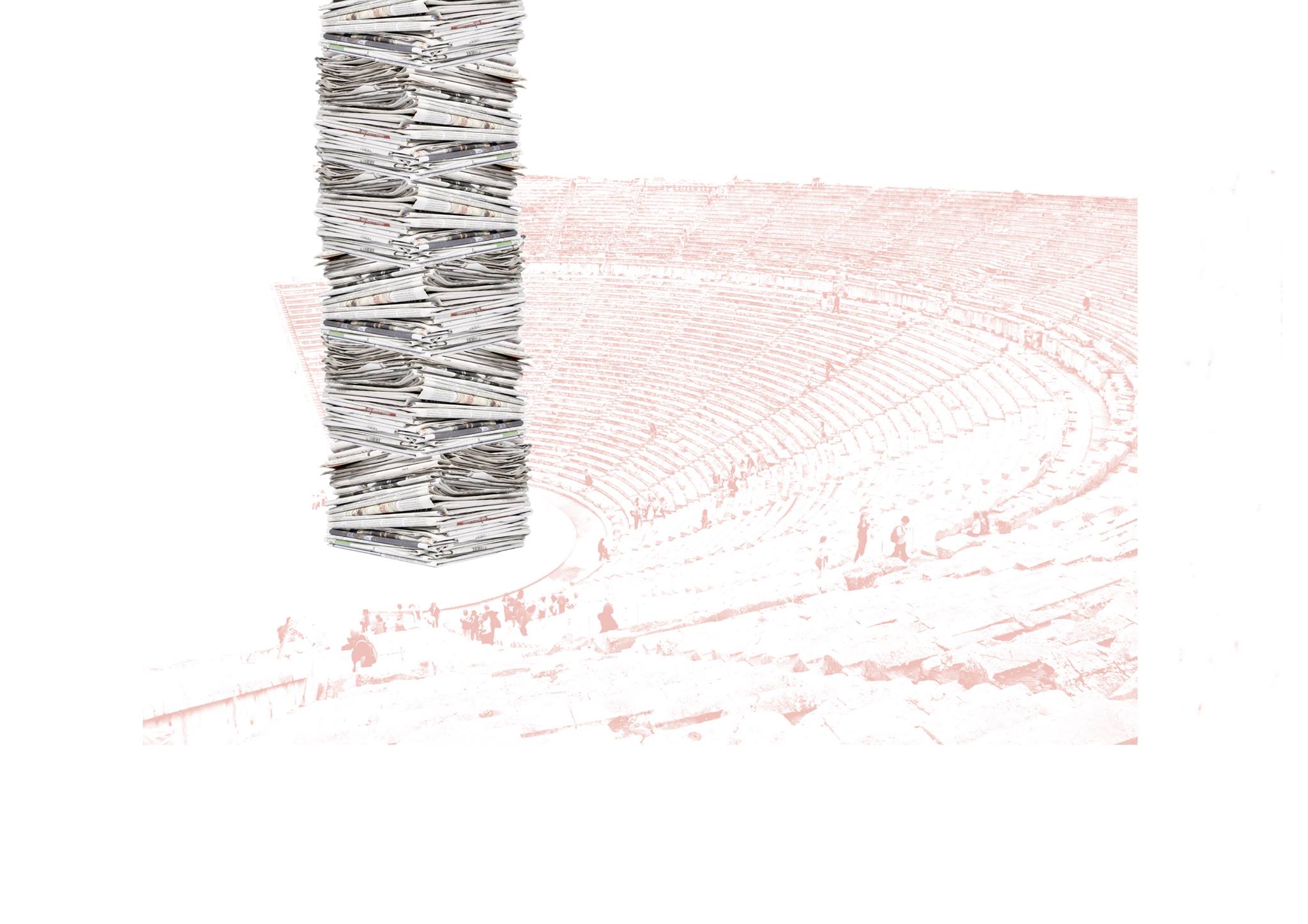
The Politicisation of Tragedy or the Tragification of Politics?
by Jack Foden | October 15, 2017
What could the Grenfell Tower disaster possibly have to do with Sophocles’ Oedipus Rex? The answer is fairly obvious: not a lot.
Yet in the wake of the Grenfell Tower fire, commentators across the political spectrum returned to that age-old debate concerning “the politicisation of tragedy”.
On the one hand, Tanya Gold (New Statesman) and James O’Brien (LBC) were quick to frame the Grenfell fire as the direct result of austerity cuts. On the other, Boris Johnson seemed appalled by Labour’s “outrageous politicking”, and The Daily Express lambasted Jeremy Corbyn for politically capitalising on the fire. In many of these cases, the word “tragedy” peppered discussion.
There is, however, a certain irony in decrying the politicisation of “tragedy”. Tragedy or “the tragic” – as a word, concept or even a vague notion free of academic jargon – is brimming with political import. By using it, those insisting that an event is not political have themselves, implicitly, projected a political bias: that blame should not, or cannot, be allocated. For despite being used almost casually in contemporary discourse, the word ultimately derives its sense from the literary genre.
The hunt for a faultless definition of tragedy is a Holy Grail in literary studies – many have tried, and many have failed. But without wading into the dense bog of “tragic theory”, the genre – particularly Greek tragedy – can largely be regarded as that lofty stuff of gods, of the so-called “metaphysical”. Carelessly inflicting disaster or redeeming lives upon a whim, the gods themselves appear throughout Greek tragedy to alter the course of mortal affairs – from Athena in Sophocles’ Ajax to Aphrodite in Euripides’ Hippolytus.
As tragedy moves through the millennia, this divine force adopts different shapes or names – fate, destiny, history, comeuppance even – but ultimately, the principles of necessity and the powerlessness of man remain.
In medieval literature, the gods are replaced by the Boethian “Wheel of Fortune”, which belongs to the goddess Fortuna. As she spins it at random, the rich and wealthy fall, while the poor and wretched rise. In Chaucer’s Monk’s Tale, for instance, those that “stoode in heigh degree” would “fillen so that ther nas no remedie”, and struggle though they might, there wasn’t much they could do to change that.
Shakespeare’s early modern tragedies are similarly peppered with plot-spoiling agents of the divine – Witches in Macbeth, soothsayers in Julius Caesar and choric revelations about “star-crossed lovers” in Romeo and Juliet. The impersonal force of History may have replaced the gods, but our heroes are, regardless, still destined for desolation and death.
Even in 20th century works, a lack of free will seems to penetrate the tragic. Samuel Beckett’s characters, for example, appear unable to move (in Happy Days), unable to stop talking (in Not I) or unable to exit the stage (in Waiting for Godot). In nearly all of his plays, his characters are even denied death or suicide – the one grim consolation for their tragic predecessors such as King Lear or Titus. For all its variations then, it seems safe to say that the genre is, at least, bound up with notions of inevitability and determinism.
Does referring to the Grenfell fire as a “tragedy” not then suggest a sort of political fatalism: that things were beyond our control, somehow unavoidable? Yet examples abound of warnings about safety in high-rise buildings under both Tory and Labour governments.
A report to the Home Office in the early 1990s cautioned that many buildings did not satisfy basic standards. With grim prescience, a review by a parliamentary committee, published in 2000, concluded that “[w]e do not believe that it should take a serious fire in which many people are killed before all reasonable steps are taken towards minimising the risks”. In a 2012 assessment, the British Automatic Fire Sprinkler Association said that sprinklers could be built in Grenfell Tower at an average cost of £1,150 per flat.
After six people died in the 2009 Lakanal House fire, the coroner’s report in March 2013 recommended that the government “encourage” housing providers responsible for high rise flats “to consider the retro-fitting of sprinkler systems”. The residents themselves expressed safety concerns, given that their escape path in the event of a fire was a single staircase. But they had limited access to legal aid to challenge these regulations. Meanwhile, Southwark council handed out £100 rebates to its top-rate taxpayers.
Grenfell was far from an unavoidable “tragedy” then, and to sever the word from its roots as such is to do an injustice to those that have lost as a result of the fire. It cools a fire in us that should be raging at both Labour and Tory governments for failing to act upon recommendations. Moreover, to apply the label to real-life events can be insensitive.
This is all the more apparent if one considers the thematic continuity among tragic texts – that suffering is productive. Christopher Caudwell has neatly summarised this literary feature in Eagleton’s Sweet Violence: The Idea of the Tragic, paradoxically suggesting that “tragedy is not in itself tragic; it is beautiful, tender and satisfying – in the Aristotelian sense cathartic’’. That is, for the survivors of tragedy, suffering should be somehow bracing, life-affirming or cleansing – what seems terrible and random in fact occupies a place in a larger, cosmic whole.
It is this idea that It should go without saying that none of this could possibly resonate with Grenfell’s survivors.
Nonetheless, we should be careful not to be tactless when rejecting the term in relation to the Grenfell fire. After all, who really has Shakespeare in mind when they refer to a disaster as ‘tragic’? Who cares about the life of Hamlet when there have been 80 real deaths? What possible relevance does this lofty academic term have to actual suffering? Of course, Grenfell is a tragedy in the common sense, but that word also has a history.
Admittedly, the Tragic and the tragic – terms that never had much definitional clarity in the first place – are more blurred today than ever. As Eagleton noted in Sweet Violence: The Idea of the Tragic, the terms “tragic” and “very sad” are now almost entirely interchangeable – indeed we are quick to drop the ‘t-word’ into casual conversation.
Yet those that insist a “tragedy” should not be politicised should perhaps pause and consider the loose implications of their language: that events such as Grenfell were unavoidable and should inspire a sort of philosophic acceptance rather than anger, that the fire was not the product of two decades of governmental failures to act on cautionary reports or that there is some cruel value to be gained from suffering. Even a cursory consideration of “tragedy” suggests that the word is neither innocent nor weightless. Words rarely are.
Naturally, this prompts other questions. Shouldn’t we simply tell literary critics to briefly descend from their lofty heights? To touch base with reality and recognise that the word “tragedy” has been uprooted? That “tragedy” should now be treated altogether differently from its semantic origins? These are all valid questions. However, death on a scale such as the Grenfell fire is always political. Perhaps the most appropriate question, then, is not whether a tragedy should be politicised, but whether politics should be “tragified”.
Illustration by Eleanor Begley




